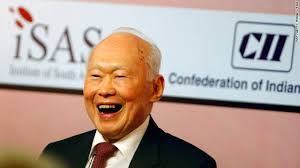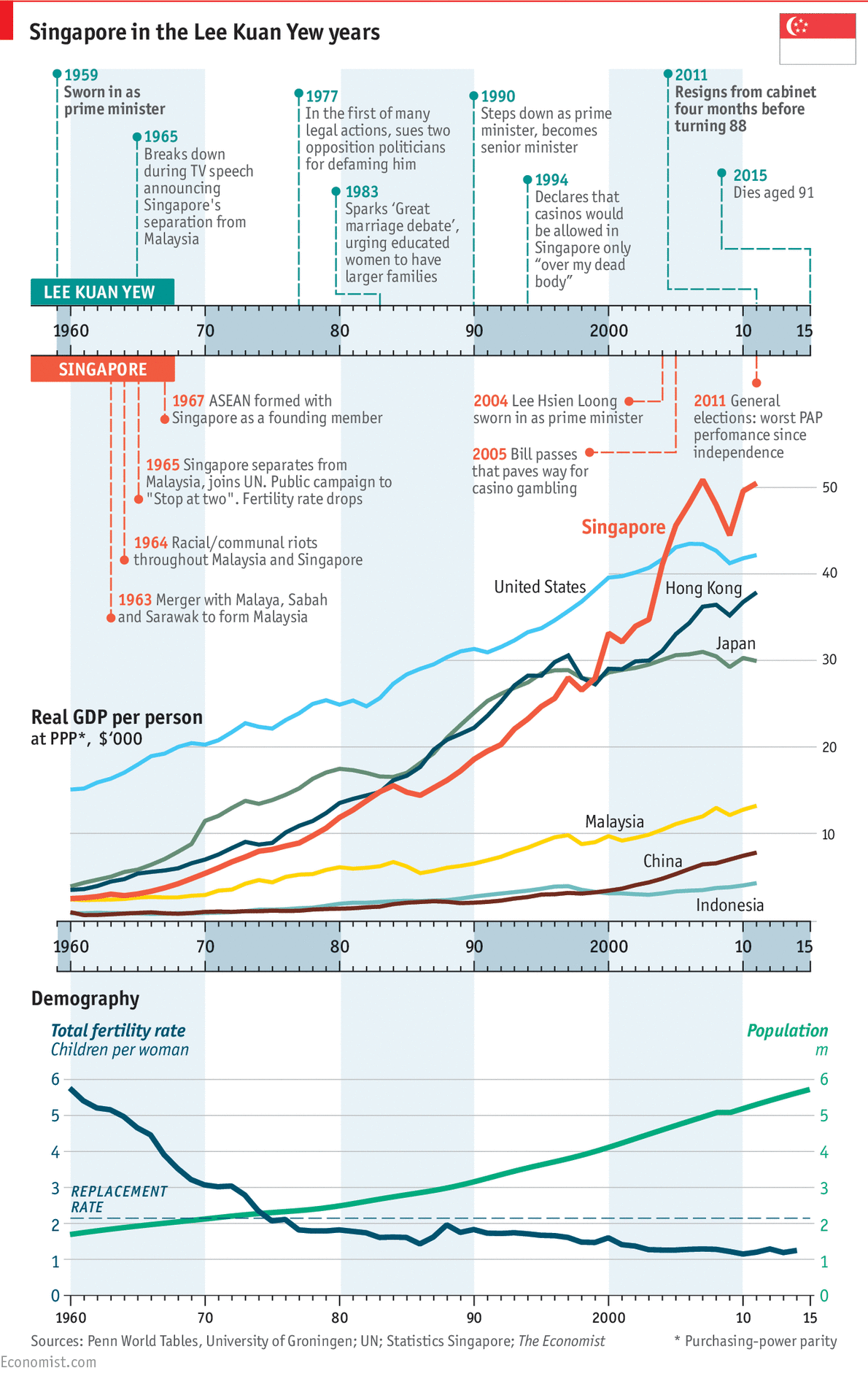 Singapore lost its founding father last week. Lee Kuan Yew died on 23rd March 2015. Lee transformed the colonial backwater into one of Asia’s prominent countries.
Singapore lost its founding father last week. Lee Kuan Yew died on 23rd March 2015. Lee transformed the colonial backwater into one of Asia’s prominent countries.
Writing down some of the things I could understand on what led to this transformation and is there the other side as well.
In one of the interviews Lee had said “We don’t have the ingredients of a nation. The elementary factors like homogenous population, common language, common culture and common destiny”.
So how did such a transformation happen in 50 years of Country’s existence?
When this small city state was ejected from Malaysian union in 1965, it was threatened from within by race riots as well as communist insurgency. His autobiography wonderfully recounts the story of how he crafted success out of these challenges.
After taking charge of this small city state, Lee opted for pragmatism over ideology and social stability over civil rights. Lee believed that the record of any country should be judged against the backdrop of its historical, cultural and Institutional realities.
Lee has been an exceptional leader. His clarity of vision, conviction, honesty, discipline in the pursuit of the goal, blunt but not derogatory approach, taking firm decisions and foresightedness has made Singapore what it is today. History was instructive but not imprisoning for him. He prized opportunity, meritocracy, work ethics and education. His sharp intellect gave him an aura of an elder statesman in Asia and in the World. His free economic policy led to Singapore becoming headquarters to many multinational companies.
Lee’s perception about India :
Lee’s perception of India changed over the years. Initially he pitted India to China and highlighted India’s obvious disadvantages over China. When the concept of East Asia Summit (EAS) to strengthen peace and security in the region was conceived, India wasn’t a part. However when the forum was launched in 2005, India was one of the founding members of EAS. This was largely because of Lee’s advocacy for India.
Singapore’s economic growth :
Since beginning Lee has adopted a free market philosophy. This approach has helped them grow faster economically than their peers. The free market philosophy has also been balanced by a chain of successful companies that are owned by government, public housing projects to house most citizens and compulsory savings through public provident fund. Singapore has seen higher savings and investment rates. Growth happens on account of rapid capital formation for which savings are absolutely necessary.
Singapore’s per capita income rose from $2529 in 1960 to $36897 in 2013 in constant 2005 dollar terms according to World Bank indicators. This means Singapore’s per capita income rose by 14.5 times from 1960 to 2013 in real terms.
Over the same period, India’s per capita income grew from $228 to $1165, or five times.
Task discipline vs Thinking big : 
Under Lee, Singapore has seen towering skyscrapers, landscape gardens, spotless streets and a disciplined society. Singapore has also seen the other side. No cutting edge research, no global brands like Sony of Japan, Apple of US, Samsung of Korea and ICICI Bank, Infosys, Flipkart, Tata’s & Birla from India.
The unquestioned obedience makes Singapore run like a well-oiled machinery. This leaves little scope for developing an experimenting mindset, which could be limiting the citizens and the country in future.
Singaporeans make excellent managers and technocrats but there are very few entrepreneurs.
Can our country learn from Lee’s philosophy?
According to Infosys ex- chairman Mr. Narayan Mutrhy who met Lee multiple times, India can learn the following things from him.
- Integrity of thought and action by political leadership.
- Duties should come before rights.
- Selecting political candidates and the bureaucrats on the basis of their merit.
- Weeding out corruption through stricter laws.
- Removing friction and facilitating more business friendly environment.
India is different from Singapore in many ways. The size of our country, culture, demographics and socio-political setup. The world takes lessons from us on running a democratic set up.
So we may want to experiment with Lee’s model by taking the top 50 cities of our country or top two in each state and create a mini Singapore. This without compromising the ethos of our Country. Now, this may sound like an Oxymoron but what’s the harm in at least giving a thought and creating blue print?
Swachh Bharat Mission and Smart cities is a great starting point.


Bhushan, the thought is great. Selecting two cities per state will provide a good pilot for transformation program. A combination of political will, technology, out-of-the-box thinking and time can make mini- singapores in India.
– Sameer